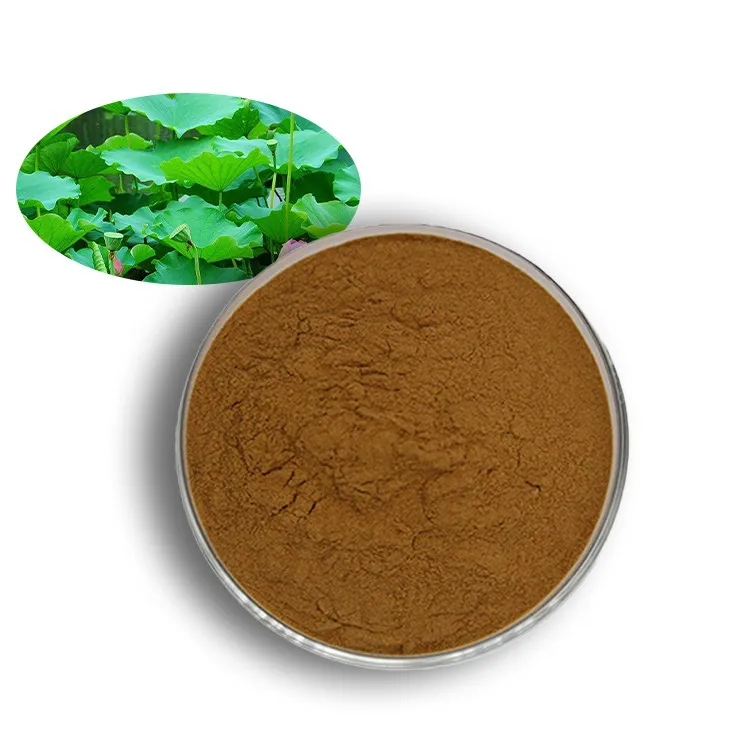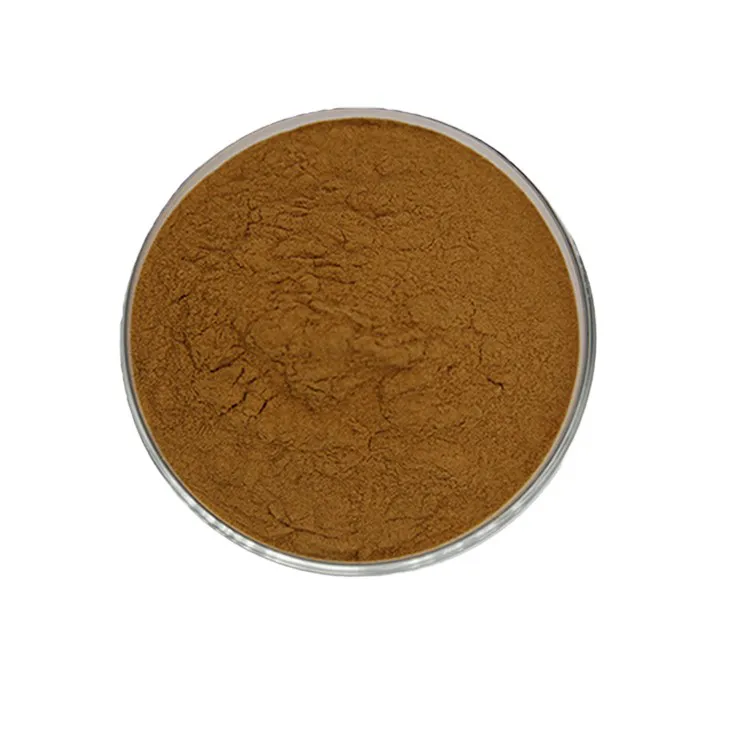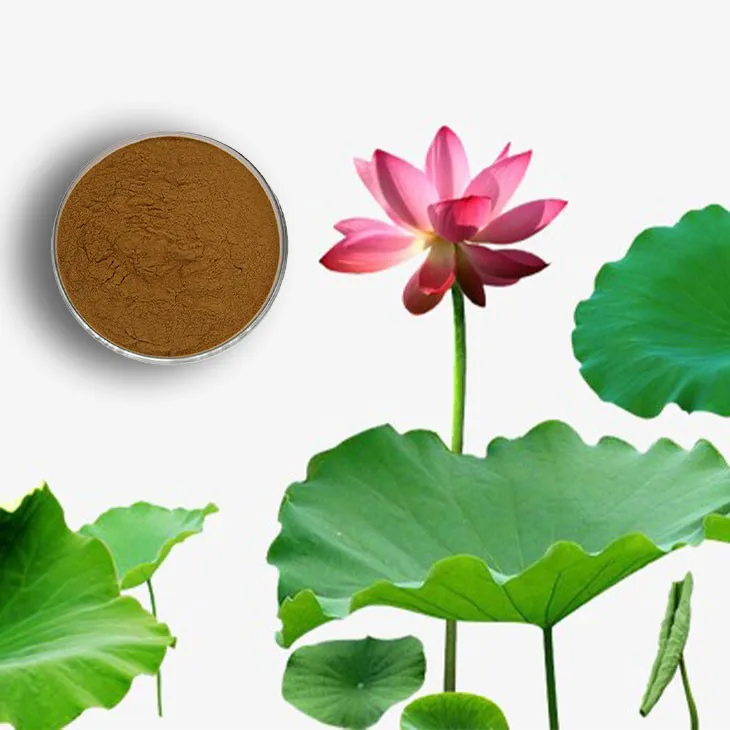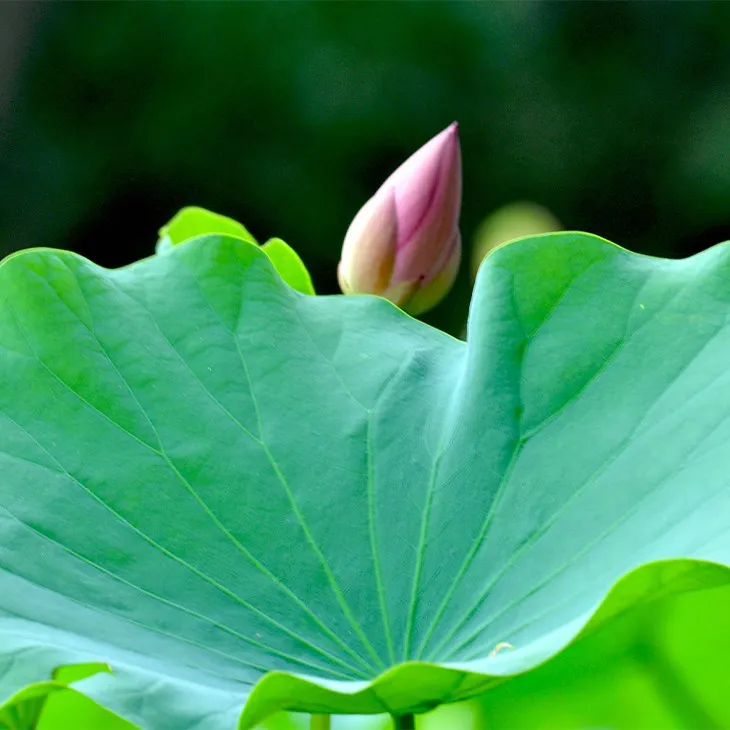- 0086-571-85302990
- sales@greenskybio.com
Organic non - transgenic lotus leaf extract.
2024-11-29

Introduction
The organic non - transgenic Lotus leaf extract is a substance that has been garnering increasing attention in various fields. Derived from the lotus leaf, which is organically cultivated and non - transgenic, this extract is a rich source of bioactive compounds. The lotus plant has a long - standing cultural and historical significance in many regions, and now its leaves are being explored for their modern - day applications.

Source and Production
The lotus leaves used for extraction are carefully sourced from organic farms. These farms adhere to strict organic farming practices, which ensure that no genetically modified organisms (GMOs) are involved in the growth process. The production of the extract involves several steps:
- Harvesting: The lotus leaves are harvested at the appropriate time to ensure the highest content of bioactive compounds. This is usually during a specific stage of the plant's growth cycle.
- Cleaning: After harvesting, the leaves are thoroughly cleaned to remove any dirt, debris, or impurities.
- Extraction: There are various methods of extraction, such as solvent extraction or supercritical fluid extraction. The choice of method depends on factors like the desired purity of the extract and the type of bioactive compounds to be isolated.
- Concentration and Purification: The extracted liquid is then concentrated and purified to obtain a high - quality extract with a significant concentration of bioactive components.

Bioactive Compounds in the Extract
The organic non - transgenic Lotus leaf extract contains a diverse range of bioactive compounds, which contribute to its multiple functions:
- Flavonoids: These are known for their antioxidant properties. They can scavenge free radicals in the body, which are unstable molecules that can cause damage to cells. In the context of skin health, flavonoids in the Lotus leaf extract can help protect the skin from oxidative stress caused by environmental factors such as UV radiation and pollution.
- Alkaloids: Alkaloids present in the extract may have various physiological effects. Some alkaloids have been studied for their potential anti - inflammatory properties, which could be beneficial in both traditional medicine and cosmetic applications.
- Tannins: Tannins are a class of compounds that can have astringent properties. In traditional medicine, they have been used for their ability to tighten tissues and reduce inflammation. In skincare, tannins may help in reducing skin pores and improving the overall texture of the skin.

Traditional Medical Applications
In traditional medicine systems, the lotus leaf has been highly regarded for centuries.
Diuretic Properties
One of the most well - known traditional uses of the lotus leaf extract is its diuretic effect. This means that it can help the body to increase the production of urine. By doing so, it enables the body to eliminate excess water and toxins more efficiently. This property has been used in traditional medicine to treat various conditions related to water retention, such as edema. Edema is the abnormal accumulation of fluid in the body's tissues, which can cause swelling and discomfort. The diuretic action of the lotus leaf extract helps to regulate the body's fluid balance and reduce the symptoms associated with edema.
Detoxification
As part of its role in traditional medicine, the lotus leaf extract is also believed to aid in detoxification. The body is constantly exposed to various toxins from the environment, food, and other sources. The extract, through its diuretic and other properties, helps to flush out these toxins from the body. This detoxification process can improve overall health and well - being. It may also help in improving liver and kidney function, as these organs are primarily responsible for filtering and eliminating toxins from the body.

Cosmetic Applications
The organic non - transgenic lotus leaf extract has shown great potential in the field of cosmetics.
Skin Health
- Antioxidant Protection: As mentioned earlier, the presence of antioxidants in the extract, such as flavonoids, plays a crucial role in protecting the skin from environmental stressors. These stressors include UV radiation, which can cause premature skin aging, wrinkles, and skin cancer. By neutralizing free radicals, the lotus leaf extract helps to maintain the skin's health and youthful appearance.
- Anti - Inflammatory Effect: The anti - inflammatory properties of the extract can be beneficial for various skin conditions. Inflammatory skin conditions such as acne, eczema, and psoriasis can cause redness, itching, and discomfort. The use of lotus leaf extract in skincare products may help to reduce inflammation, soothe the skin, and improve the overall condition of the skin.
- Moisturizing and Hydrating: The extract may also have moisturizing and hydrating properties. It can help to keep the skin hydrated by preventing water loss from the skin surface. This can result in softer, smoother, and more supple skin.
Hair Care
There is also potential for the use of lotus leaf extract in hair care products. The bioactive compounds in the extract may help to improve the health of the scalp. For example, its anti - inflammatory properties could be beneficial for reducing scalp inflammation, which is often associated with conditions like dandruff. Additionally, it may help to strengthen the hair follicles, resulting in healthier and stronger hair.
Research and Future Prospects
While there has been significant progress in understanding the properties and applications of the organic non - transgenic lotus leaf extract, there is still much more research to be done.
- Clinical Trials: More clinical trials are needed to fully understand the effectiveness of the extract in treating various medical conditions. In traditional medicine, the anecdotal evidence is strong, but scientific validation through well - designed clinical trials is essential for its wider acceptance in modern medicine.
- Cosmetic Formulations: In the cosmetic industry, research is ongoing to optimize the use of the extract in different formulations. This includes finding the best ways to incorporate it into creams, lotions, serums, and other skincare products to maximize its benefits while ensuring product stability and safety.
- New Applications: Scientists are also exploring new applications for the lotus leaf extract. For example, there may be potential in using it in the development of functional foods or nutraceuticals, which combine the benefits of food and medicine.
In conclusion, the organic non - transgenic lotus leaf extract is a promising substance with a wide range of potential applications. Its rich composition of bioactive compounds makes it valuable in both traditional medicine and the modern cosmetic and potentially other industries. With further research and development, it is likely to play an even more significant role in improving human health and well - being.
FAQ:
What are the main bioactive compounds in organic non - transgenic lotus leaf extract?
The main bioactive compounds in the organic non - transgenic lotus leaf extract include various substances. Flavonoids are one of the important components. They contribute to the antioxidant and anti - inflammatory properties of the extract. There may also be alkaloids which could be related to its diuretic functions in traditional medicine applications.
How is the organic non - transgenic lotus leaf extract obtained?
The extraction process typically involves several steps. First, the organically sourced and non - transgenic lotus leaves are carefully collected. Then, they are usually subjected to a suitable extraction method such as solvent extraction. Commonly used solvents might include ethanol or water - based solvents. After extraction, purification steps may be carried out to obtain a more concentrated and pure form of the lotus leaf extract.
Can the organic non - transgenic lotus leaf extract really improve skin health?
There is evidence suggesting that it can. The antioxidant elements in the extract can combat free radicals that are generated by environmental stressors like UV radiation and pollution. By neutralizing these free radicals, it helps protect the skin cells from damage. Also, its potential anti - inflammatory effect can soothe irritated skin, which is beneficial for overall skin health. However, more research is still needed to fully understand all of its effects on skin health.
What is the evidence for the diuretic properties of the organic non - transgenic lotus leaf extract?
In some traditional medical systems, there have been long - term observations and records of the diuretic effects of lotus leaf. However, from a scientific perspective, some in - vitro and in - vivo studies have also been carried out. These studies may have observed changes in urine output or the function of the kidneys' filtration system when the extract is administered. But more comprehensive and in - depth research is required to firmly establish the mechanism behind its diuretic properties.
Are there any side effects of using products containing organic non - transgenic lotus leaf extract?
Currently, there is no widespread evidence of significant side effects when using products containing this extract in normal amounts. However, some individuals may be allergic to certain components in the lotus leaf extract. Also, if used in excessive amounts in some unregulated products, there could be potential unknown risks. It is always advisable to use products containing this extract following proper guidelines and under the supervision of a healthcare professional if necessary.
Related literature
- The Bioactive Compounds in Lotus Leaves: A Review"
- "Traditional Medicinal Uses of Lotus and Their Scientific Validations"
- "Lotus Leaf Extract in Cosmetics: Properties and Potential Applications"
- ▶ Hesperidin
- ▶ Citrus Bioflavonoids
- ▶ Plant Extract
- ▶ lycopene
- ▶ Diosmin
- ▶ Grape seed extract
- ▶ Sea buckthorn Juice Powder
- ▶ Fruit Juice Powder
- ▶ Hops Extract
- ▶ Artichoke Extract
- ▶ Mushroom extract
- ▶ Astaxanthin
- ▶ Green Tea Extract
- ▶ Curcumin
- ▶ Horse Chestnut Extract
- ▶ Other Product
- ▶ Boswellia Serrata Extract
- ▶ Resveratrol
- ▶ Marigold Extract
- ▶ Grape Leaf Extract
- ▶ New Product
- ▶ Aminolevulinic acid
- ▶ Cranberry Extract
- ▶ Red Yeast Rice
- ▶ Red Wine Extract
-
Peppermint Oil
2024-11-29
-
Europen Bilberry Extract
2024-11-29
-
Elderberry Extract
2024-11-29
-
Dan Shen Root Extract/Salvia Root Extract
2024-11-29
-
Garcinia Cambogia Extract
2024-11-29
-
Cocoa Extract
2024-11-29
-
Centella Asiatica Extract
2024-11-29
-
Mulberry Extract
2024-11-29
-
Resveratrol extract
2024-11-29
-
Genistein
2024-11-29





















